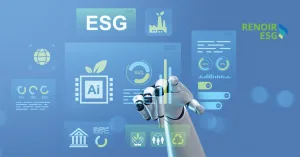At a Glance
- Many established companies often face similar internal challenges when trying to make the transition to sustainability, including management indifference to driving change, weak or non-existent governance, and a lack of clarity about the sustainability journey.
- However, the longer your company waits to act, the more expensive it will be to play catch up later.
- Some approaches to addressing the deep and widely rooted internal blockers include engaging stakeholders to understand the organisational context and needs, identifying gaps to enable the reframing of issues, and mapping out your own sustainability strategy.
There is a threefold increase in top leaders recognising the business case for sustainability between 2022 and 2023, according to a Capgemini Research Institute survey. Despite this growing awareness, a significant percentage of top leaders surveyed still view sustainability as too costly or burdensome. This discrepancy highlights a stark reality – many companies may not fully understand their responsibility to embed sustainability into their core operations because they have failed to see the value.
Internal roadblocks to sustainability progress
Many established companies that rely on past successes may question the need to overhaul their operations to accommodate and/or integrate sustainability initiatives. When attempting to make the transition to sustainability, these companies often face similar internal challenges, including:
- Management apathy to drive change: Some senior executives are reluctant to take concrete action based on the statistics above. There is a tendency to delay the climate transition as some hope to pass the buck to future management teams.
- Weak to non-existent governance: Sustainability transformation is typically a top-down initiative, and its implementation affects the entire organisation, cutting across different business units and geographies. Without a robust governance framework, it can be difficult to maintain momentum and influence across different units, resulting in missed targets.
- Resistance to change: Sustainability transformation is more than just a recalibration of the mission statement or business objectives. It requires a fundamental change in mindset and behaviour. Senior executives need to drive this change.
- Lack of clarity: A lack of internal or external expertise, resources and a pathway with clear initiatives to manage and implement the sustainability strategy can lead to confusion among employees, misalignment of initiatives, and overall delays in progress.
Remove the hidden, internal barriers
Internal blockers to sustainability progress can be a tricky problem because they are deeply and widely rooted in organisations. Here are some approaches to help leaders gain clarity, prioritise goals and actions, and align resources to make progress on their sustainability journey:
1. Understand the organisational context and needs
Embedding sustainability into a company’s core operations requires a comprehensive review of its operations. When implemented correctly, it leads to improved financial performance. This complete overhaul requires a deep understanding of the organisation’s context, which can be gained through stakeholder engagement.
The engagement process is essential for materiality analysis, identifying the most significant issues for both the company and its stakeholders. This process provides a deeper understanding of the organisation’s current sustainability trajectory and helps to develop solutions that meet the organisation’s needs and create value in the short-, medium-, or long-term.
2. Embed sustainability into core operations
Sustainability is a company-wide responsibility, not confined to one individual or department. Leadership and governance play key roles in implementing a sustainability strategy. Companies should consider strengthening their governance structure, processes, and integration to help accelerate sustainability transformation across the organisation.
A strong governance structure enables the organisation to identify, measure, and mitigate both physical and transition risks. Clear roles and responsibilities are essential for tracking progress against targets and take corrective action when necessary.
3. Identify gaps; Reframe challenges for solutions
Sustainability often involves working with ranges and possible scenarios, supported by explanatory narratives to account for potential shifts. To prepare for these challenges, conducting a gap analysis to assess the current sustainability maturity level can help organisations identify the steps needed to achieve their ambitions. The analysis can also form the basis for developing contingency plans to deal with unforeseen challenges.
4. Tailor your course
Each company’s sustainability journey is unique, influenced by factors such as business model, structure and culture, regulatory requirements, internal capabilities, and external market conditions. It is important to develop a customised sustainability strategy that is tailored to your specific circumstances.
5. Commit and execute
Sustainability transformation requires concrete action from everyone in the organisation to achieve tangible progress. Investing in skills, capacity, and a robust structure is essential to drive organisation-wide integration. Besides the approaches outlined above, sustainability transformation also encompasses a wider range of initiatives, such as developing a net zero plan, conducting climate scenario analysis, and implementing sustainable supply chain policies.
Inaction is not an option
Sustainability and climate change are here to stay. The longer your company waits to act, the more expensive it will be to play catch up later. For companies that are still hesitant about sustainability, the pressure to change is growing. External factors such as legislation and internal pressure from consumers, shareholders, and employees, are driving change. Organisations that have only touched the surface of the benefits of sustainability should act quickly to capitalise on the opportunities and minimise the risks of inaction.
Has your organisation started its sustainability journey, or do you want to know where your organisation stands so that you can take concrete action and make tangible progress?















